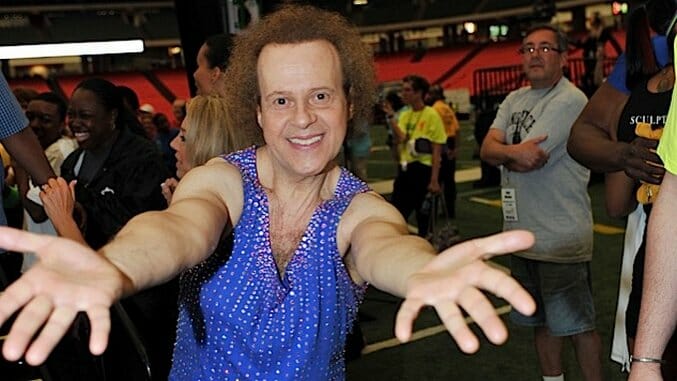Missing Richard Simmons Creator Defends Podcast at Northside Festival

Wednesday marked the first day of the annual Northside Festival in Williamsburg, Brooklyn. While it’s known for bringing an array of emerging musical talent to the area, the festival also offers an impressive lineup of panels and speakers featuring the creators of a variety of different types of media, including the latest trendy storytelling medium: the podcast.
At this point, if you haven’t heard of the podcast Missing Richard Simmons, you might be missing, like Richard Simmons. After the first episode was released on Feb. 15, the show, which follows host Dan Taberski’s quest to track down the beloved fitness icon, quickly became one of the most talked-about and downloaded podcasts, on par with smash hits like Serial and S Town. Many listeners, however, struggled with the ethics of Taberski digging into Simmons’s life without his subject’s involvement. Was Taberski really Simmons’s friend, or just looking to use his star power for his own gain? Did Simmons owe reassurances that he was okay to those who might be worried about him? More than a few major thinkpieces were penned on the topic.
On Wednesday, during a panel moderated by Charlotte Locke of WIRED, Taberski (best known for his work as the documentarian behind such films as Tattoo Fixation, Chris Gets Money and , which won the South by Southwest Documentary Short Award) attempted to set the record straight. Appearing with him were Lisa Leingang of First Look Media and Matt Linsky, an executive producer on Missing Richard Simmons and the co-founder of the podcasting company Pineapple Street Media. Taberski shared insights into what he found fascinating about Simmons and the process of making the show as real-time developments occurred and defended his work against the ethical questions many raised.
“I came to Richard Simmons because I wanted to make a documentary about him,” Taberski said. “I started taking his class in Los Angeles at his studio, Slimmons, in Beverly Hills. The first day I met him I asked him if he would do a documentary with me. That was after taking the class, and I was covered in sweat. He had already practically molested me. He said ‘No,’ but with sort of a wink, so I kept coming to class. We built a relationship, always with the idea that I wanted to tell his story. Cut to two years later, and he disappears. After about a year and half of him being missing I decided to tell the story anyways.”
The podcast form was a new medium for Taberski to explore. He described how the format enabled him to delve deeper into Simmons’s story than a short documentary would have, allowing him to incorporate his own voice and experiences into the narrative and his interviewees to feel more comfortable opening up.
“I think people were really interested in Richard Simmons. I think it was a legit mystery, not a fake mystery where you hope people don’t figure it out just by Googling the answer. There was really no answer, so I think people were intrigued by that.”
-

-

-

-

-

-

-

-

-

-

-

-

-

-

-

-

-

-

-

-

-

-

-

-

-

-

-

-

-

-

-

-

-

-

-

-

-

-

-

-








































